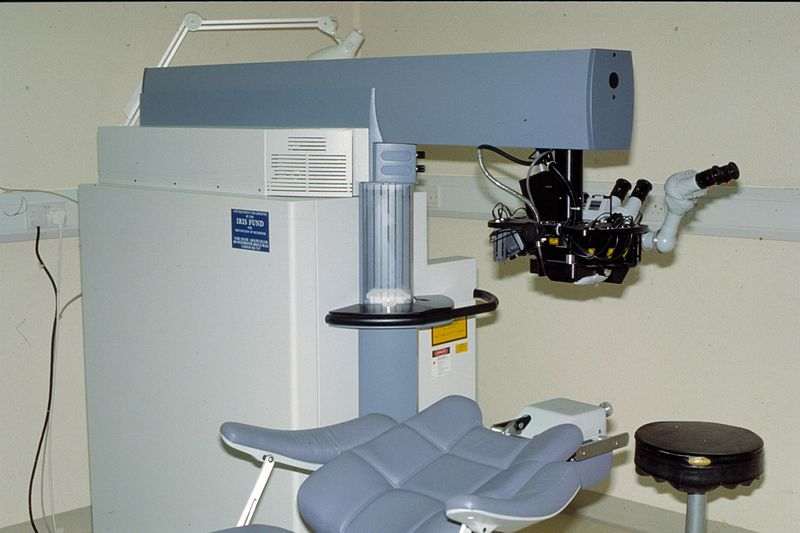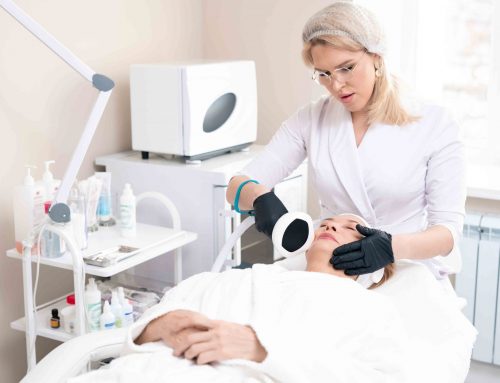Psoriasis is a challenging condition both physically and emotionally. This red itchy and scaly skin can take a toll on your life.
Though psoriasis affects your skin, it actually begins deep inside the immune system of your body. It’s an autoimmune disorder of the skin leading to uncontrolled multiplication of your skin cells. It is characterized by thick red inflamed skin covered in silvery patches. These recurring patches occur typically on the legs, elbows, scalp, lower back, soles of the feet and palms. However, they can occur anywhere on the body.
There is no permanent cure for psoriasis, but there are many ways by which you can ease the symptoms of psoriasis. The treatment of psoriasis aims to stop or limit the growth of skin cells and to remove the scales and itchiness.
Topical Therapy

Psoriasis comes with dry patchy skin which can be itchy and cause discomfort, but with the right treatment plan, you can manage such symptoms. Your dermatologist may suggest you lotions, creams, and ointments which are referred to topical treatments. These can directly be applied to your skin and scalp.
Corticosteroids
Doctors are likely to recommend these prescribed medications to manage mild to moderate psoriasis. They may help with inflammation and reduce the building up of skin cells. These are available in the form of creams, ointments, foams, gels, sprays, and shampoos. Mid corticosteroids are usually prescribed for sensitive areas such as skin folds or your face and treating widespread patches. During flares, they can be applied once a day and less frequently just to maintain remissions.
For a tough-to-treat, less sensitive or smaller areas, skin doctors prescribe stronger corticosteroid medications. Topical corticosteroids may stop working overtime. Long-term use also has some side effects including thin skin, stretch marks, broken blood vessels, and bruising. So, ensure you follow the doctor’s directions.
Vitamin D Analogues
These topical drugs have synthetic vitamin D in them. These creams, ointments, lotions, gels, solutions, and foams slow down your skin cell growth. They are safer than corticosteroids over long-term use but they can result in irritation of the skin. Over the long-term, they may be safer for you than steroids, but they can irritate your skin. Vitamin D analogues include Calcipotriene, Calcitriol, Tacalcitol.

Calcineurin Inhibitors
These topical medications help in the reduction of inflammation and plaque buildup. Calcineurin inhibitors are especially helpful in areas where the skin is thin such as around the eyes where steroid creams may be harmful or too irritating. These are not recommended during pregnancy and breast-feeding or if you intend to get pregnant. This drug is not intended for long-term use. So, use it as per your dermatologist’s directions only.
Salicylic Acid
Salicylic acid comes in the form of ointments, lotions, creams, soaps, shampoos, gels, and cloth pads. It helps in getting rid of scales that show up on patches of skin affected by psoriasis especially scalp psoriasis. It’s helpful when used with other medications by increasing their ability to penetrate the skin more easily.
Light Therapy
If topical medications are not doing great, then dermatologists may recommend light therapy. It is a first-line treatment for moderate to severe psoriasis. It may work alone or in combination with other medications. Light therapy involves exposing skin to natural or artificial light is controlled amounts. Let’s explore light therapy options for you:
Sunlight
Daily exposure to sunlight known as heliotherapy for a brief amount such as 20-30 minutes may help in improving skin affected by psoriasis. You must cover the healthy skin with sunscreen containing zinc oxide and an SPF 30 or higher and proper clothing. Expose only affected skin. You must consult your skin doctor about the safest way to use natural light as excessive sun rays can cause sunburn which worsens the psoriasis condition.

UVB (ultraviolet B)
Controlled doses of UVB rays from a phototherapy machine can treat single patches, widespread areas, and psoriasis not treated by topical medications. It may cause short term side effects of redness, dryness, and itchy skin which can be eased out by moisturizing regularly. You may need phototherapy treatment thrice in a week for 2-3 months for great results. Sometimes, skin doctors may recommend using UVB treatment with other therapy such as coal tar which is called the Goeckerman regimen. Using ultraviolet light with anthralin-salicylic acid paste is also very effective and known as the Ingram regimen.
Psoralen Plus Ultraviolet A (PUVA)
This treatment involves a UVA lamp session with a light-sensitizing drug called psoralen. You can either take the medication as a pill or apply it on your skin as lotion, cream, gel, or ointment. UVA light has more penetration power than the UVA and psoralen makes skin more sensitive and responsive to UVA exposure. You may require 25-30 sessions for great results. PUVA manages psoriasis symptoms very well and clears up the skin quickly with long-lasting results. However, using its long term may raise the risk of skin cancer. So, doctors recommend it only in severe cases or when no other treatment has worked.

Image Source – Webmd.com
Excimer Laser
This laser treatment involves the focused use of high-energy ultraviolet B light only on psoriasis affected skin. It requires fewer sessions than other phototherapy treatments. It has mild side effects including redness, blistering, and scarring at the areas that have been treated.

Natural Treatment
There are several alternative therapies that may ease the symptoms of psoriasis such as dietary supplements, herbs, and creams. They are generally safe and effective in reducing itching and scaling in patients with mild to moderate psoriasis.
Dead Sea Salts
Various bath solutions such as Dead Sea salts, oiled oatmeal, Epsom salts, and some essential oils may help psoriasis by easing itching and removing scales. Mix the Dead Sea salt in the bath and soak in for about 15 minutes. Apply moisturizer to lock the hydration the moment you come out of the tub. It may ease the discomfort.
Fish Oils
Fish oils are a rich source of Omega-3 Fatty acids which may help in reducing the inflammation and improve autoimmune disorder. The extent of its benefit depends on the type of fish oil, its dose, and the type of psoriasis. Oral fish oil therapy in combination with UVB light therapy is known to give good results in reducing the amount of psoriasis affected skin. Applying fish oil to the affected skin and covering it for six hours for one month may also help you see the reduction in scaly skin.
Aloe Vera

Traditional medicine is using the gel from the aloe vera plant extract for so many years to treat many skin conditions. Applying aloe vera gel or an ointment contain the extract may help in reducing the itching, scaling, redness, and inflammation caused by psoriasis.
Oregon Grape
Also known as barberry, Oregon grape is a herbal remedy that may help in calming the immune response in psoriasis. It is known to improve the symptoms and is very safe and effective for patients with mild to moderate psoriasis.
Conclusion
Living with psoriasis is very challenging. You don’t only need to consider various treatment options but also need to adopt a daily regimen such as taking regular short baths, avoiding alcohol, covering the affected areas before sleeping, keeping the skin moist, taking care of your diet, and whatnots. You must always consult your dermatologist in case the symptoms aggravate.
If you want to know more about psoriasis treatment, let us help you explore your options. Schedule an appointment for a visit at our Lansing or Mount Pleasant dermatology office, whichever is convenient for you.
Disclaimer
The information contained on safehealthcenter.com is for informational and educational purposes only and should not be relied upon for any medical or diagnostic purpose, or for the treatment of any condition or symptom. This information is subject to change without notice and should not be considered current, complete, or exhaustive. You should refrain from relying on such information to recommend a course of treatment for you or any other individual without consulting our experts.





Leave A Comment